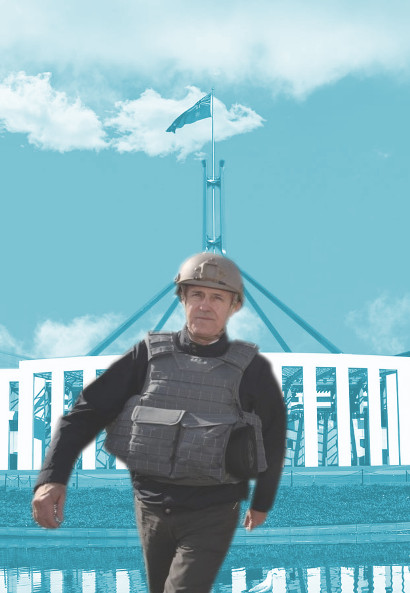PM launches security merger
 The Federal Government has merged control of Border Force, ASIO, the AFP and the Immigration Department, but experts say there is value to the way things were.
The Federal Government has merged control of Border Force, ASIO, the AFP and the Immigration Department, but experts say there is value to the way things were.
Prime Minister Malcolm Turnbull said the portfolio would be similar to the UK’s Home Office; “A federation, if you will, of border and security agencies”.
“Let me be quite clear, this is not a United States-style Department of Homeland Security,” Mr Turnbull said on Tuesday.
“The agencies will retain their current statutory independence which is such a vital aspect of our Australian system.”
“They will be supported by a central department that will oversee policy and strategic planning and the coordination of the operational response to the threats we face.
“Importantly, ASIO, the AFP and Australian Border Force will all report directly to the home affairs minister. This will ensure that these three important agencies have direct reporting into the cabinet.”
But Professor John Blaxland – head of the Australian National University’s Strategic and Defence Studies Centre – says he would not be so quick to tamper with a system he says is “arguably the envy of the world”.
“Altering that may generate problems that are hard to foresee, but which could actually significantly deteriorate our ability to respond appropriately,” Professor Blaxland said.
“I have yet to see any compelling evidence that what we have is not working, or that there is a compellingly better option out there.
“Let's just hasten slowly on this idea.”
The restructure concentrates power in such a way that the Attorney-General would no longer oversee ASIO – something very concerning for civil libertarians and those opposed to political influence in central government services.
It could also see Justice Minister Michael Keenan lose the heart of his portfolio as the Federal Police is transferred to the new office.
Professor Michael Wesley – another ANU security expert - has told Sky News that there appears to be some political purpose at play.
“We have a system that works extremely well and playing politics with Australians' lives and safety, potentially, is an extremely bad move in my view,” Dr Wesley said.
“If there is a need it's a well-kept secret,” national security expert Professor Greg Barton told reporters.
“No one who works in this area apart from Peter Dutton and some other ministers who, for political faction reasons are keen on the idea, have come forward with a reason [for creating the department].”
A 2015 review of Australia's counter-terrorism apparatus found that a super agency “would likely be less, not more, responsive”.
“Large agencies tend to be less agile, less adaptable and more inward looking than smaller departments,” it said.
The government recently received the papers from a similar review, conducted by former senior public servants Michael L'Estrange and Stephen Merchant, but its findings remain unknown.







 Print
Print